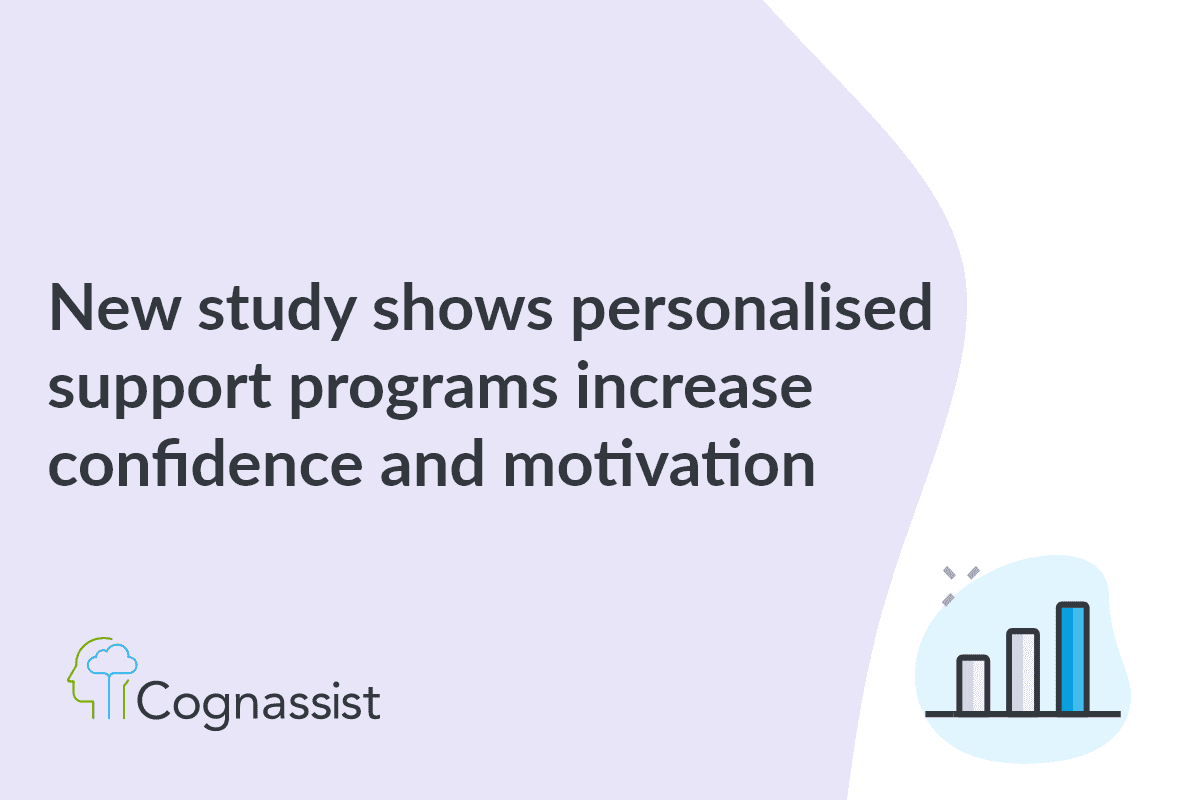Cognassist research: How to increase learner confidence and motivation with personalised support

New research from Cognassist has found that apprentices who engage with support tailored to their learning needs increase in both confidence and motivation to learn over time.
This preliminary study is important because, as previous scientific research has revealed, “Measures of confidence have the highest correlation with academic achievement.” (Non-cognitive Psychological Processes and Academic Achievement, 2016).
The conversation around SEND and high needs learners remains a top priority in education, especially for Ofsted; yet, the conversation on how to support these learners in practice and issues around self-confidence and its impact on educational attainment are less frequently discussed.
2019/20 data from the National Achievement Rates Tables shows that, on average, apprentices with learning difficulties and disabilities (LDD) had lower achievement and retention rates. With 66% retention of non-LDD learners compared to 63% retention of LDD learners, and 64.6% achievement for non-LDD compared to 61.7% achievement for LDD learners.
Previous research from Cognassist also highlighted that those apprentices who identify with learning needs are more likely to live in areas with higher deprivation across all seven of the Government’s deprivation indexes.
With the disadvantage gap increasing, ensuring every learner has the support they need to succeed is vital, and increasing confidence is part of any learning journey.
Speaking at an online event focusing on quality in the further education and skills sector, Former FE and Skills Deputy Director, Marina Gaze spoke about her experiences. She highlighted the ongoing focus on the learner:
“[G]oing back since I started inspecting 25 years ago, is it’s always all about the learner. Are they getting a good deal? Is learning tailored to meet their needs? Are they supported? Are they happy? Are they developing into confident, independent people who can move on with their learning and their careers?”
Kasim Choudhry, Managing Director at the BAME Apprentice Network, also highlighted some of the reasons why there are lower rates of identified learning difficulties in the BAME community:
“It’s the lack of resources at the end of the day. Unfortunately, when you come from a BAME background, you are at the bottom of the pecking order when it comes to these things. […] So there are three issues here. There’s self-doubt, access to support, and there’s discrimination within the system itself.”
Many learners desperately need support in education but aren’t getting the right support at the right time, meaning educators are having a hard time with increased dropout and lower attainment.
Read more about the findings of this research in our latest From the Lab series and see how you can measure the impact of learner support.










Responses